Discover Intellectual Catholicism
Intellectual Catholicism

Intellectual Catholicism
Author: Suan Sonna
Subscribed: 114Played: 3,663Subscribe
Share
Description
Suan Sonna is a Baptist convert to Catholicism who is dedicated to curating the best Catholic intellectual content on philosophy, politics, and theology. He is also passionate about engaging people outside of the Catholic tradition on issues relevant to the Church.
On Nov. 10th, 2022, I received permission from my Archbishop to call the channel "Intellectual Catholicism." He said, "I am not opposed to you calling your channel 'Intellectual Catholicism'."
On Nov. 10th, 2022, I received permission from my Archbishop to call the channel "Intellectual Catholicism." He said, "I am not opposed to you calling your channel 'Intellectual Catholicism'."
146 Episodes
Reverse
Michael Licona discusses why there are differences in the Gospels based on ancient writing conventions. He also touches on inerrancy and his forthcoming book.
Fr. Thomas Crean, OP and Erick Ybarra defend the Filioque on philosophical, historical, biblical, and theological grounds.
Suan explains the problem with "historical retrieval" as stated by Gavin Ortlund in this 5-minute case for Protestantism (2:43): "And to be sure many contemporary Protestants do have a shallow historical consciousness. But Protestantism as such is nothing other than an effort of historical retrieval. The magisterial reformers appealed to the church fathers just as much as, and sometimes more than, they appealed to scripture to oppose what they saw as the novel accretions and innovations of the medieval west." In short, historical retrieval eventually became the extreme secular form of the historical critical method.
The Cordial Catholic (Keith Little) shows that although Jerome taught that presbyters and bishops are equals, Jerome also shows that the apostles universally decreed that one bishop-presbyter should be placed over the other bishop-presbyters. In other words, the monarchical episcopate, the structure of the Catholic Church, has its origins in the apostles.
Alan Fimister, an atheist convert to Catholicism, argues that the Protestant reformation led to secularism.
Suan summarizes his position on Nicaea II and further defends his thesis. He shows that Nicaea II is simply silent on whether or not the apostles venerated icons like the 8th century iconodules. That's not the way of reasoning at the Council. Moreover, Suan explores the forgeries used at Nicaea II, finding them to not endanger any central teachings of the Council or his thesis.
Thomas Farrar argues for the deity and personhood of the Holy Spirit. We conclude by reflecting on the meaning and significance of the Trinity.
Thomas Farrar summarizes his previous presentation and provides MORE evidence that Jesus is God.
Thomas Farr presents scriptural evidence for the deity of Christ.
Erick Ybarra presents seven propositions on Melchizedek and the Last Supper that, together, constitute a case for transubstantiation. Erick discusses Paul's eucharistic texts and Orthodox and Protestant objections.
Joe Heschmeyer discusses how Pope Leo took down the robber council "Ephesus II" (449 AD) and what this means for the debate between Catholics and Orthodox on papal authority.
Seraphim Hamilton, an Orthodox biblical theologian, discusses his journey from theistic evolution to young earth creationism. Seraphim's views are not the host's own views.
Hassan Ahmad, a graduate of Princeton and current Harvard student, discusses his conversion from Islam to Roman Catholicism. He also explains why he didn't become Eastern Orthodox and Protestant.
How do you defend the Trinity? What are some pitfalls to avoid? Thomas Farrar discusses these vital points, including an overlooked early historical document in favor of the Trinity.
Suan talks to one of his classmates at Harvard University, Sea-Yun Pius Joung, who is also a brilliant Catholic thinker.
Ben Bollinger, a promising young Orthodox thinker, raises a new argument against sola scriptura. Suan, an ex-Protestant Catholic, offers some pushback.
Seraphim Hamilton discusses how Protestants and Orthodox/Catholics interpret the Bible differently and flaws in the Protestant hermeneutic.
Erick Ybarra responds to Gavin Ortlund's case against Vatican I based on Pope Vigilius and the witness of other scholars by providing the evidence for Vatican I in the first 1,000 years of Christianity.
In this presentation, Suan Sonna argues that there is a plausible case to be made of development from the apostles to Nicaea II on the matter of image veneration. Suan first responds to Gavin Ortlund's objection that Nicaea II rejects development in the cultic use of images from the apostles to the Council. Suan accomplishes this by examining the decree and sessions of the Council. The second section fills in the details on image veneration between the apostles and the Council, arguing that there has always been a cultic use of sacred images in Christianity.
According to the Bible and Second Temple Judaism, who or what is Satan? Thomas Farrar explores this question with immense clarity and rigor.









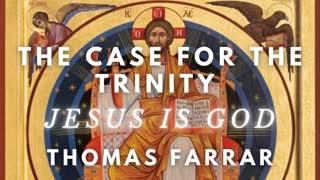
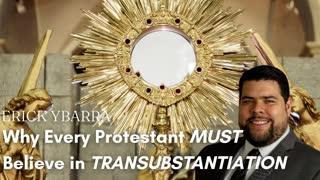

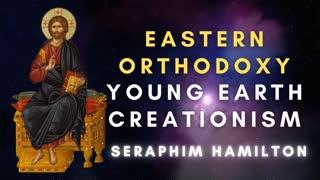
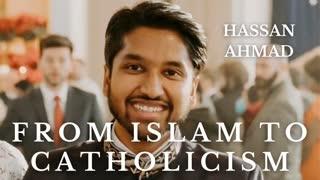
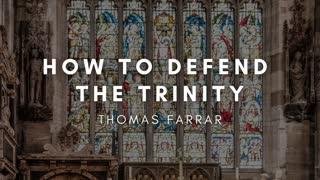
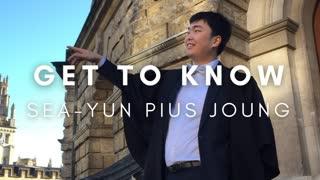
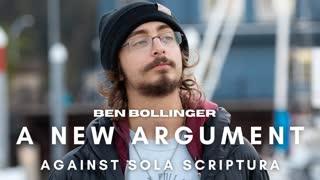
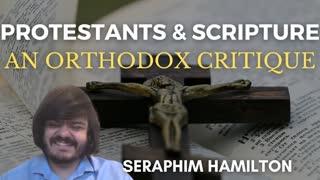
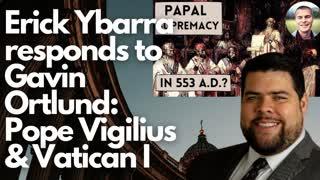




a fantastic show one of my favourite ones shame the host keeps calling it intellectual conservatism...brings to mind whackos with pistols and red caps.